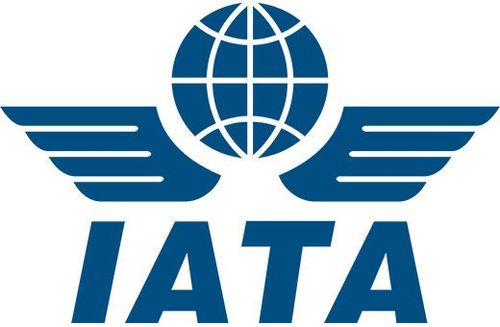Where travel agents earn, learn and save!
News / Strong passenger demand continues in July
July 2023 saw a substantial 26.2% increase in global passenger traffic compared to the previous year

The International Air Transport Association (IATA) announced that the post-COVID recovery momentum continued in July for passenger markets.
Total traffic in July 2023 (measured in revenue passenger kilometers or RPKs) rose 26.2% compared to July 2022. Globally, traffic is now at 95.6% of pre-COVID levels.
Domestic traffic for July rose 21.5% versus July 2022 and was 8.3% above the July 2019 results. July RPKs are the highest ever recorded, strongly supported by surging demand in the China domestic market.
International traffic climbed 29.6% compared to the same month a year ago with all markets showing robust growth. International RPKs reached 88.7% of July 2019 levels. The passenger load factor (PLF) for the industry reached 85.7% which is the highest monthly international PLF ever recorded.
Air passenger market in detail
| JULY 2023 (%YEAR-ON-YEAR) | WORLD SHARE *1 | RPK | ASK | PLF (%PT) *2 | PLF (LEVEL) *3 |
|---|---|---|---|---|---|
| Total Market | 100% | 26.2% | 23.7% | 1.7% | 85.2% |
| Africa | 2.1% | 25.0% | 26.3% | -0.8% | 74.6% |
| Asia Pacific | 22.1% | 67.1% | 53.4% | 6.7% | 81.6% |
| Europe | 30.8% | 11.7% | 11.5% | 0.2% | 87.7% |
| Latin America | 6.4% | 15.5% | 11.4% | 3.1% | 86.7% |
| Middle East | 9.8% | 21.9% | 21.0% | 0.6% | 82.1% |
| North America | 28.8% | 13.2% | 11.9% | 1.0% | 89.7% |
(*1) % of industry RPKs in 2022 (*2) Change in load factor (*3) Load factor level
International passenger markets
Asia-Pacific airlines saw a 105.8% increase in July 2023 traffic compared to July 2022, continuing to lead the regions. Capacity climbed 96.2% and the load factor increased by 3.9 percentage points to 84.5%.
European carriers’ July traffic rose 13.8% versus July 2022. Capacity increased 13.6%, and load factor edged up 0.1 percentage points to 87.0%.
Middle Eastern airlines posted a 22.6% increase in July traffic compared to a year ago. Capacity rose 22.1% and load factor climbed 0.3 percentage points to 82.6%.
North American carriers had a 17.7% traffic rise in July 2023 versus the 2022 period. Capacity increased 17.2%, and load factor improved 0.3 percentage points to 90.3%, which was the highest among the regions for a second consecutive month.
Latin American airlines’ traffic rose 25.3% compared to the same month in 2022. July capacity climbed 21.2% and load factor rose 2.9 percentage points to 89.1%.
African airlines saw a 25.6% traffic increase in July 2023 versus a year ago, the second highest percentage gain among the regions. July capacity was up 27.4% and load factor fell 1.0 percentage point to 73.9%, the lowest among the regions. For a second month in a row, Africa was the only region to see capacity growth outrun traffic demand.
Domestic passenger markets
| JULY 2023 (%YEAR-ON-YEAR) | WORLD SHARE *1 | RPK | ASK | PLF (%PT) *2 | PLF (LEVEL) *3 |
|---|---|---|---|---|---|
| Domestic | 41.9% | 21.5% | 16.7% | 3.3% | 84.5% |
| Dom. Australia | 1.0% | 3.5% | 8.5% | -4.1% | 83.2% |
| Dom. Brazil | 1.5% | 3.6% | -0.1% | 3.0% | 83.4% |
| Dom. China P.R. | 6.4% | 71.9% | 49.1% | 10.5% | 79.2% |
| Dom. India | 2.0% | 21.1% | 13.3% | 5.3% | 83.3% |
| Dom. Japan | 1.2% | 13.4% | 1.3% | 7.8% | 72.7% |
| Dom. USA | 19.2% | 11.1% | 9.5% | 1.3% | 89.2% |
(*1) % of industry RPKs in 2022 (*2) Change in load factor (*3) Load factor level
China’s domestic traffic jumped 71.9% in July compared to a year ago and is now 22.5% above July 2019 levels, which was the strongest gain against pre-pandemic levels among the domestic markets.
US airlines’ domestic demand climbed 11.1% in July and was 3.0% above the July 2019 level.
Air passenger market overview
| JULY 2023 (% CH VS SAME MONTH IN 2019) | WORLD SHARE1 | RPK | ASK | PLF (%-PT)2 | PLF (LEVEL)3 |
|---|---|---|---|---|---|
| Total Market | 100.0% | -4.4% | -3.9% | -0.4% | 85.2% |
| International | 58.1% | -11.3% | -11.7% | 0.4% | 85.7% |
| Domestic | 41.9% | 8.3% | 10.4% | -1.7% | 84.5% |
1) % of industry RPKs in 2022 2) year-on-year change in load factor 3) Load Factor Level











